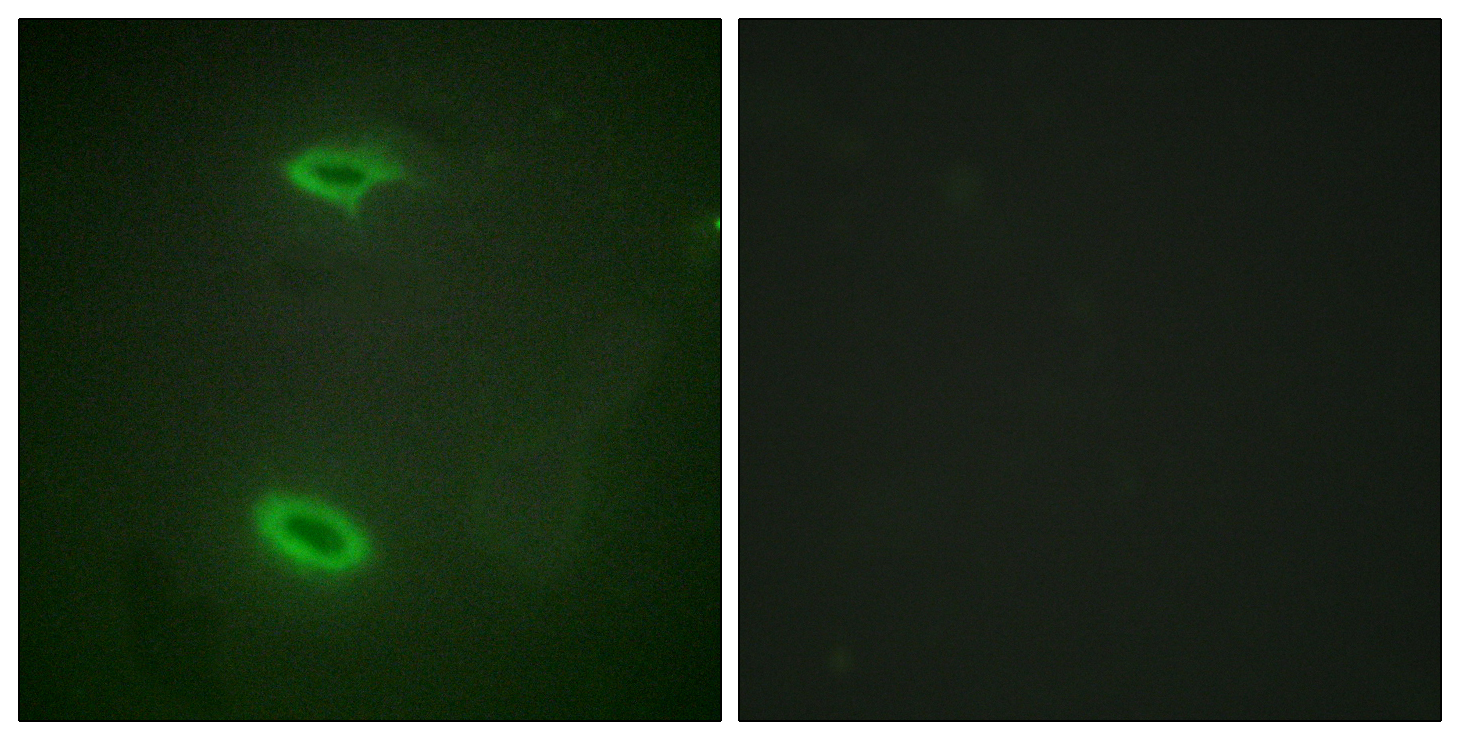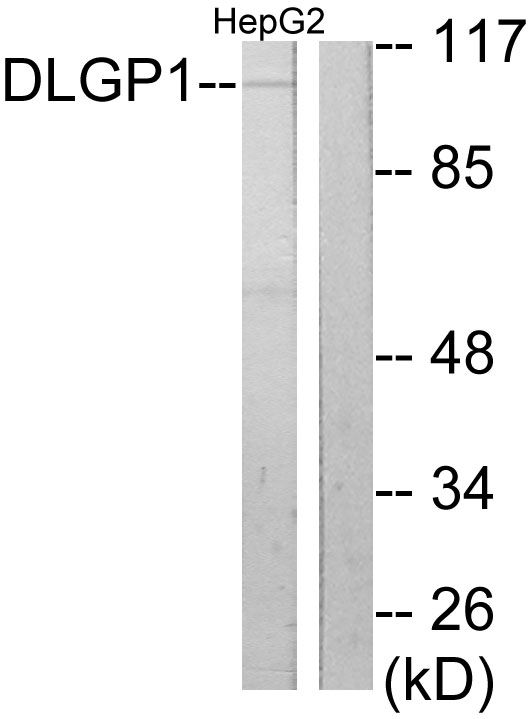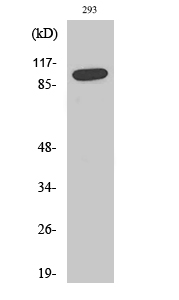产品名称
SAPAP1 Rabbit Polyclonal Antibody
别名
DLGAP1; DAP1; GKAP; Disks large-associated protein 1; DAP-1; Guanylate kinase-associated protein; hGKAP; PSD-95/SAP90-binding protein 1; SAP90/PSD-95-associated protein 1; SAPAP1
蛋白名称
Disks large-associated protein 1
存储缓冲液
Liquid in PBS containing 50% glycerol, 0.5% BSA and 0.02% New type preservative N.
Human Gene Link
http://www.ncbi.nlm.nih.gov/sites/entrez?db=gene&term=9229
Human Swissprot No.
O14490
Human Swissprot Link
http://www.uniprot.org/uniprotkb/O14490/entry
Mouse Gene Link
http://www.ncbi.nlm.nih.gov/sites/entrez?db=gene&term=224997
Mouse Swissprot No.
Q9D415
Mouse Swissprot Link
http://www.uniprot.org/uniprot/Q9D415
Rat Gene Link
http://www.ncbi.nlm.nih.gov/sites/entrez?db=gene&term=65040
Rat Swissprot Link
http://www.uniprot.org/uniprot/P97836
免疫原
The antiserum was produced against synthesized peptide derived from human DLGP1. AA range:791-840
特异性
SAPAP1 Polyclonal Antibody detects endogenous levels of SAPAP1 protein.
宿主
Polyclonal, Rabbit,IgG
背景介绍
function:Part of the postsynaptic scaffold in neuronal cells.,similarity:Belongs to the SAPAP family.,subcellular location:Found in postsynaptic density of neuronal cells.,subunit:Interacts with guanylate kinase-like domain of DLG1, DLG2, DLG3, DLG4 and AIP1. Interacts with the PDZ domain of SHANK1, SHANK2 and SHANK3. Found in a complex with DLG4 and SHANK1, SHANK2 or SHANK3. Found in a complex with DLG4 and BEGAIN. Interacts with DYL2 and LRFN1.,tissue specificity:Expressed in brain.,
细胞定位
Cell membrane ; Peripheral membrane protein . Cell junction, synapse, postsynaptic density . Cell junction, synapse .
功能
function:Part of the postsynaptic scaffold in neuronal cells.,similarity:Belongs to the SAPAP family.,subcellular location:Found in postsynaptic density of neuronal cells.,subunit:Interacts with guanylate kinase-like domain of DLG1, DLG2, DLG3, DLG4 and AIP1. Interacts with the PDZ domain of SHANK1, SHANK2 and SHANK3. Found in a complex with DLG4 and SHANK1, SHANK2 or SHANK3. Found in a complex with DLG4 and BEGAIN. Interacts with DYL2 and LRFN1.,tissue specificity:Expressed in brain.,
纯化
The antibody was affinity-purified from rabbit antiserum by affinity-chromatography using epitope-specific immunogen.



